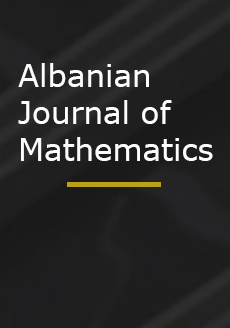Abstract
Skew polynomial rings have invited attention of mathematicians and various properties of these rings have been discussed. The nature of ideals (in particular prime ideals, minimal prime ideals, associated prime ideals), primary decomposition and Krull dimension have been investigated in certain cases.
This article concerns transparent (decomposable) rings. Recall that a ring is said to be a Transparent ring if in there exist irreducible ideals such that and each has a right Artinian quotient ring.
Now let be a ring, which is an order in an Artinian ring . Let and be automorphisms of and be a -derivation of ; i.e. is an additive mapping satisfying for all . We define an extension of , namely , subject to the relation for all .
We show that if is a commutative Noetherian -algebra, and as usual, then there exists an integer such that the extension ring is a Transparent ring, where , and is an -derivation of with , and , for all .
Citation
V. K. Bhat. "DECOMPOSABILITY OF EXTENSION RINGS." Albanian J. Math. 2 (4) 283 - 291, 2008. https://doi.org/10.51286/albjm/1229538942
Information





